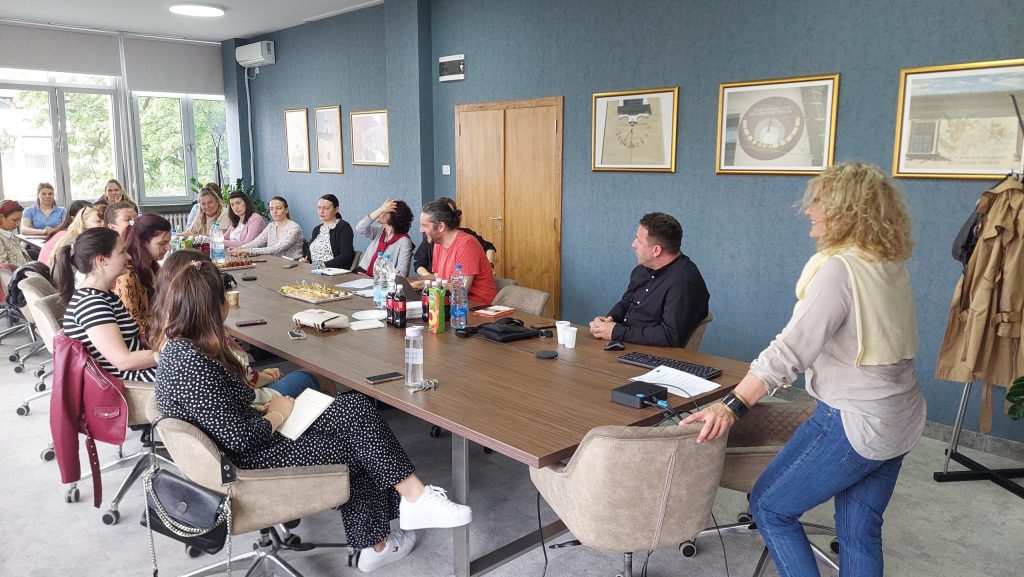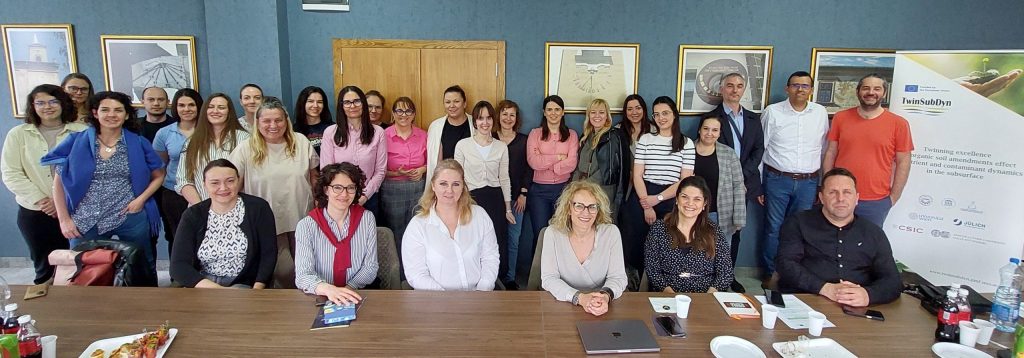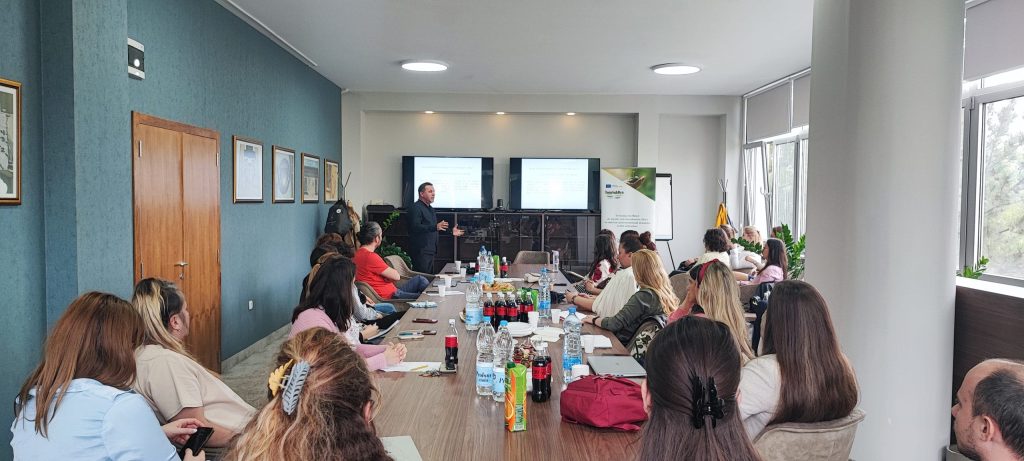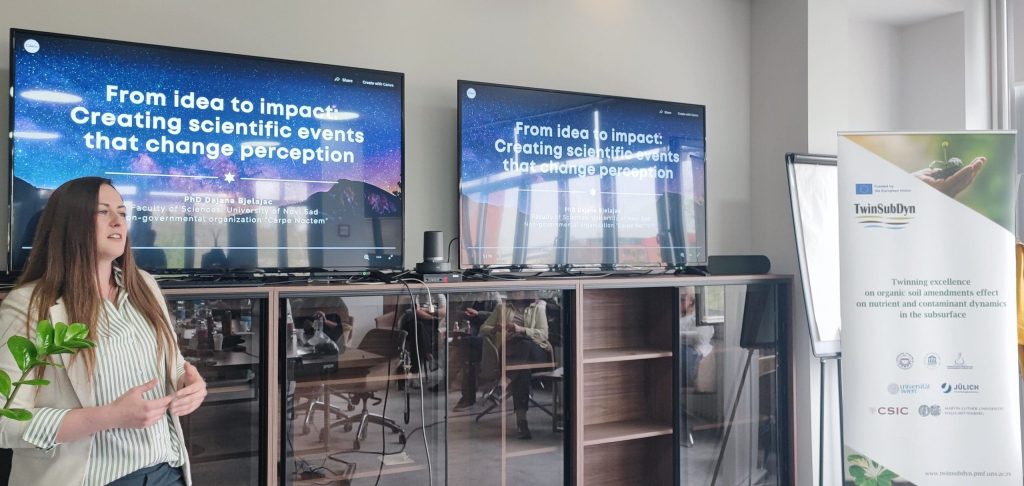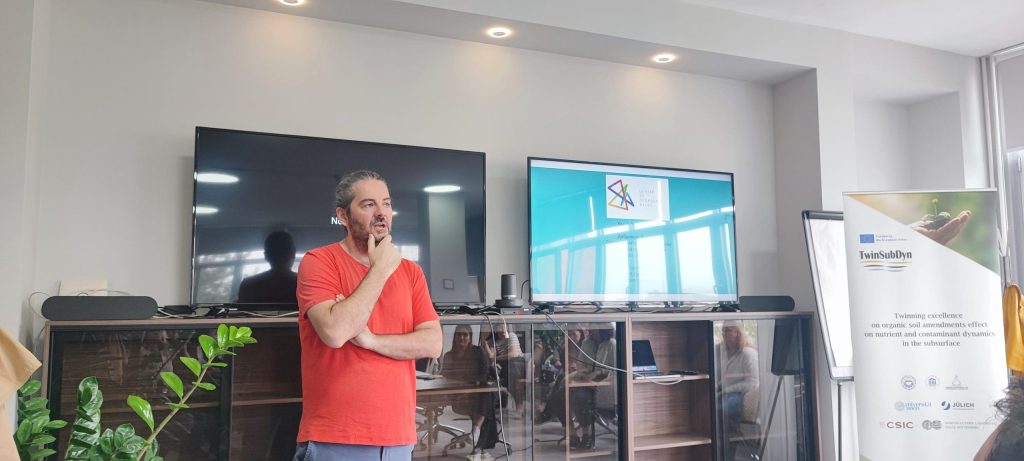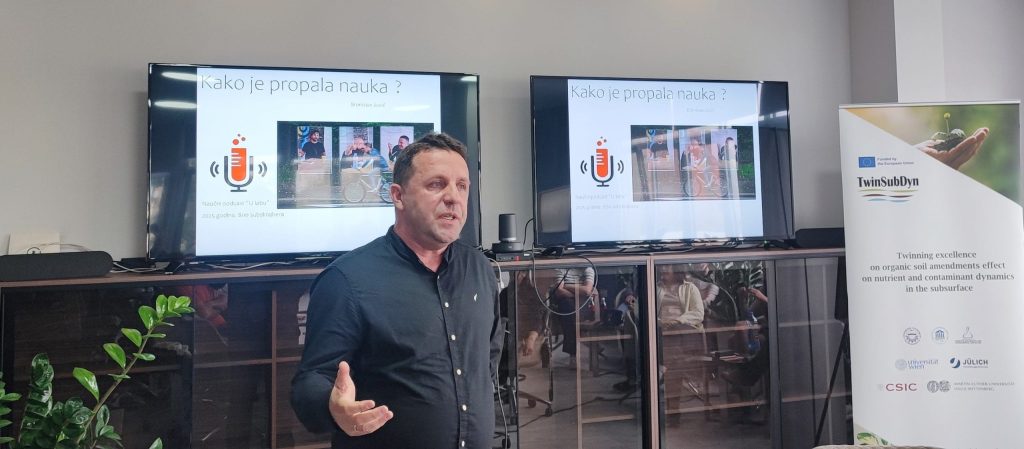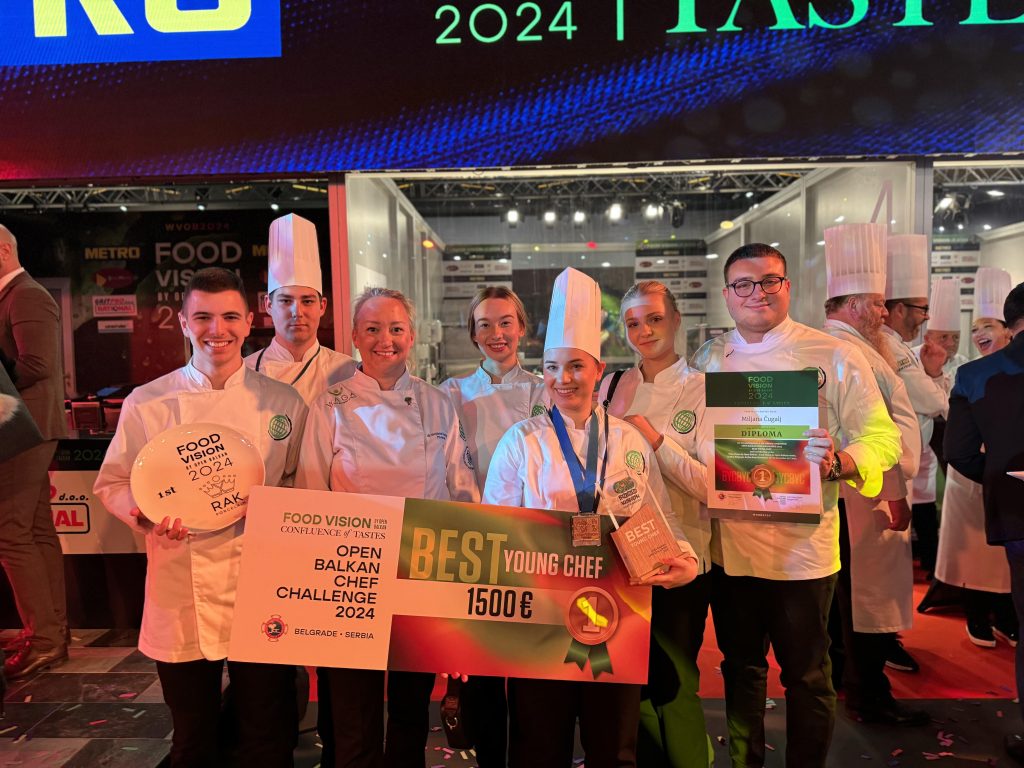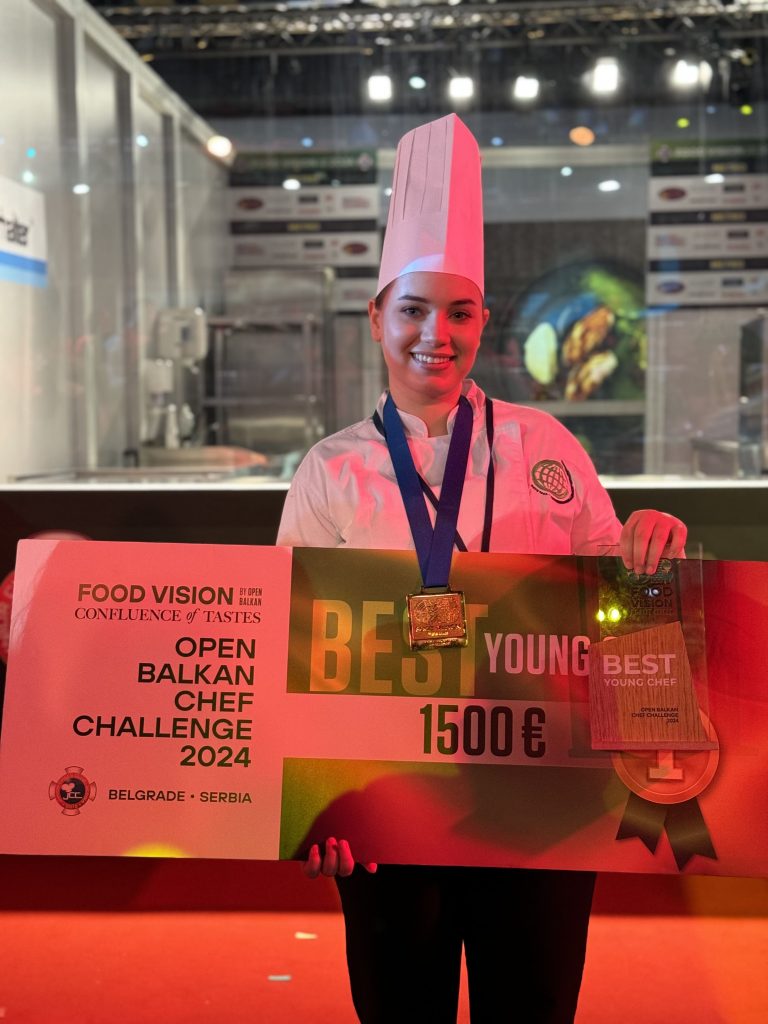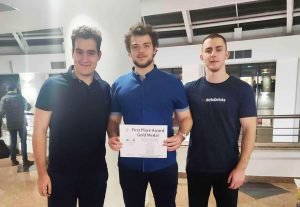On Thursday, April 17, 2025, the Science Communication Workshop was held at the Faculty of Science, University of Novi Sad, as part of the TwinSubDyn project (Horizon Europe – Twinning Western Balkans), dedicated to developing science communication skills and promoting science to broader audiences.
The workshop was very well attended, which clearly indicates the growing interest among researchers and teaching staff in learning how to present their work to wider audiences – in clear, engaging, and socially relevant way.
Through interactive lectures and open discussions, participants gained practical insights and heard firsthand experiences from speakers who have been actively involved in various forms of science communication for years.
- Dr Branislav Jović, Full Professor at the Faculty of Sciences, spoke about challenges faced by modern researchers from project deliverables and reporting obligations to media relations and building trust with decision-makers. His talk “How Has Science Failed?” sparked an engaging discussion on the current role and perception of science in society.
- Dobrivoje Erić, Head of International Cooperation at the Center for the Promotion of Science, presented different approaches to involving the public in scientific processes in his lecture “How to Communicate Science to (Un)Desired Audiences?” emphasizing the importance of open, tailored communication strategies for different target groups.
- Dr Dajana Bjelajac, Assistant Professor at the Faculty of Sciences, through her talk “From Idea to Impact” and the story “Carpe Noctem“, demonstrated how scientific events can be transformed into immersive experiences that break down the barrier between science and the public – especially when addressing topics such as light pollution ant the natural night sky.
Over the course of three hours, participants explored how to make science more visible, inspiring, and accessible to those outside the academic world. The clear goal of the workshop was to empower participants to think creatively and to share their research in a way that people can understand, relate to, and want to follow.
The Science Communication Workshop confirmed the importance of science communication, not only as a skill but also as a responsibility of every researcher who wants to leave an impact beyond scientific journals.

